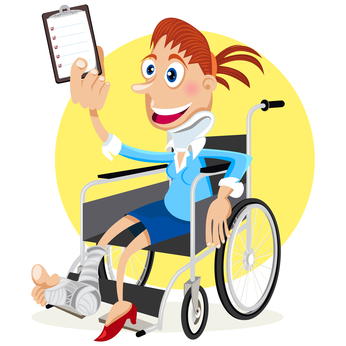Tips On Providing Notice To Courts In Slip and Fall Injury Claims

In addition to finding the appropriate defendant to sue in slip and fall injury claims, plaintiffs now face another obstacle. After the case of Grant v. The Corporation of the City of Kingston and Queen’s University, it now appears that plaintiffs must provide a municipality with notice if they intend to file a claim against the municipality. The judge from that case ruled that plaintiffs must provide written notice of a claim within 10 days of suffering the injury from a slip and fall accident in the city.

This notice requirement indicates how important it is for plaintiffs to sue the appropriate plaintiff in slip and fall injury cases. In that case, Ms. Grant had suffered injuries after slipping on a sidewalk outside of Queen’s University in the middle of winter. She had originally filed a claim against Queen’s University due to her belief that this entity owned the sidewalk on which she had suffered an injury. When she attempted to file suit against the municipality, the court threw out her claim due to its lack of timeliness. She had tried to file the claim against the municipality over 12 months after the original accident, and the court held that she had not provided proper notice of her claim to the municipality. This case points to the importance of hiring a personal injury lawyer who is experienced in choosing the appropriate defendant for slip and fall injury lawsuits.
In the case mentioned above, Ms. Grant attempted to rely on Section 44(12) of the Municipal Act to excuse her failure to provide timely notice. When the City of Kingston brought a motion for summary judgment, she relied upon this rule as her defense in failing to provide timely notice. The rule indicates that one is excused from providing timely notice of a personal injury claim against a municipality if he or she has a reasonable excuse for the late notice, and the municipality has suffered no prejudice in raising its own defenses. The court initially dismissed the municipality’s motion for summary judgment, but the court was careful to discuss the the meanings behind “prejudice” and “reasonable excuse.” Lawyers should now be aware that these are concepts which a court may closely consider in one’s own slip and fall injury case.
There may be other slip and fall cases in which a plaintiff wishes to sue a private property owner. The standard private property owners must meet is providing a reasonably safe atmosphere for those entering on one’s property. Various courts have interpreted this to mean that private companies must have a systematic maintenance routine in place to clean up hazards like snow or sleet. If one slips on the sidewalk of a private company and there is no system of maintenance in place, then the company may be liable for the injuries that the individual has suffered.
Many more legal issues are raised when one slips on a sidewalk that is owned both by a municipality and private company. In this instance, it can be difficult to determine which defendant to sue. The court will determine liability in these cases based on the entity that has physical possession of the premises or exerts control over the premises. It has to be clear to the court that a defendant has assumed the responsibility of maintaining the sidewalk in order for that defendant to be liable for the injuries that a plaintiff has suffered.
When one has a slip and fall injury claim, it can be best to seek legal advice from a personal injury lawyer as soon as possible. A lawyer can help one to provide timely notice and find the appropriate defendant to sue.
sources:
1. http://edsonlegal.com/slip-and-fall-injury-lawyers-toronto/
2. http://www.jdsupra.com/legalnews/providing-notice-to-a-municipality-for-s-01145/
